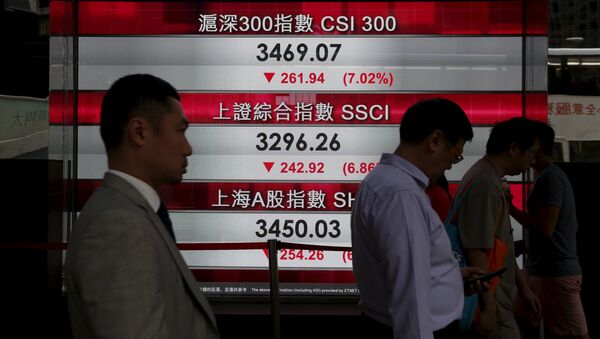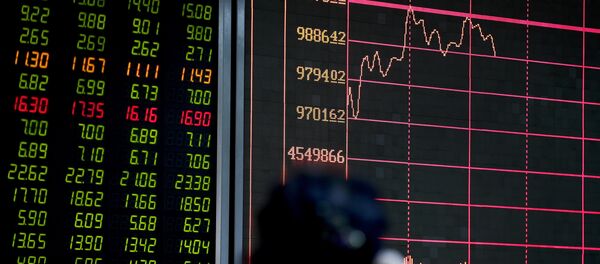MOSCOW (Sputnik), Alexander Mosesov – According to data provided by the National Bureau of Statistics of China, the country’s annual growth rate in 2015 was the worst in 25 years, at 6.9 percent of GDP compared to 7.3 the previous year.
Earlier in January, the World Bank forecast a continuation of this slowing trend, with Beijing’s economic growth in 2016 expected to amount to 6.7 percent.
While some experts attribute this to stock market volatility as the national currency, the yuan, continues to lose value against the US dollar, others argue that there is a more fundamental reason for the economy's lackluster performance.
Turbulent Transition
Yun Sun, a senior associate with the East Asia Program at the Stimson Center, reiterated this assessment to Sputnik on Wednesday, adding that "the sluggish export recovery, the economic restructuring which takes time and pains, the accumulated effects from previous economic policies, the mismanagement of stock market and foreign exchange" are among the main reasons for the slowdown.
At the same time, Kerry Brown, director of the Lau China Institute at King's College, London, told Sputnik that this kind of restructuring is actually increasing the quality of the economy.
"It is part of the transition to a higher quality, lower growth economic model, and this has been happening for a number of years now. China could not sustain such high GDP growth levels. It is working on producing higher service levels, greater value added, and a different growth model. And this 6.9 percent growth is on a huge economy, rather than the 10 per cent growth in the last few decades which was when China was a smaller economy," Brown said.
The director of the Lau China Institute added that China's "era of fast double digit growth is over."
Speaking about the government’s assessment of the situation, Yun Sun said official Beijing is "more optimistic than many outside observers."
"The government seems to believe that [the Silk] Belt and Road will create demand and reinvigorate the economy, but in reality it is much more complicated than that," the senior associate with the East Asia Program at the Stimson Center warned.
In 2013, Chinese President Xi Jinping proposed the construction of a new Silk Road within the Silk Road Economic Belt initiative to facilitate the direct flow of goods from the Pacific Ocean to the Baltic Sea. The megaproject is intended to connect China with Europe and strengthen economic ties between Asia, Europe and the Gulf states.
Those Who Suffer
As for 2015, China’s gross domestic product equates to nearly 16 percent of the world’s economy. When such a heavyweight begins to slow down, other countries will feel the impact, experts believe.
"In fact the whole world will see a knock on effect, because China is an engine of demand, and that demand is now clearly slowing," Kerry Brown noted.
According to Brown, the counties suffering the most are those that are reliant on Chinese demand for resources, such as Brazil and Australia.



